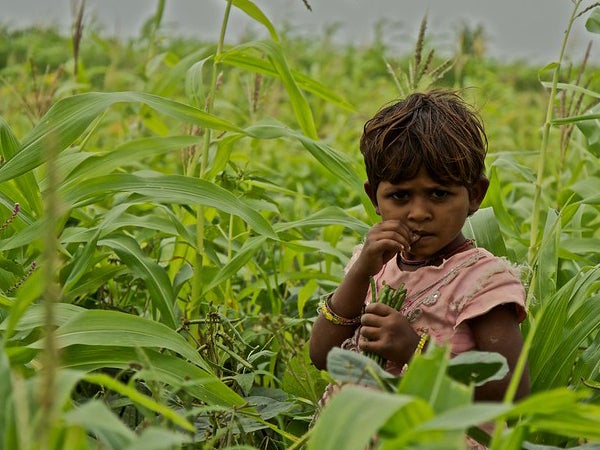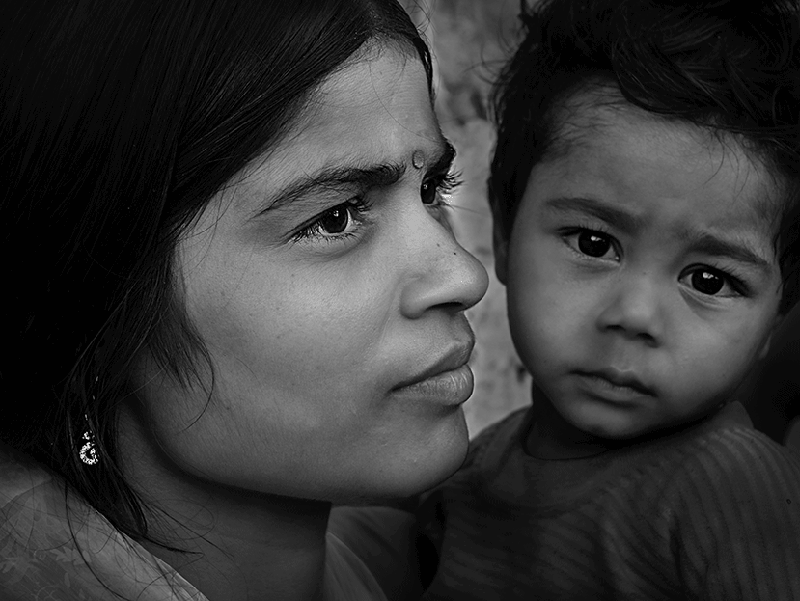S V Subramanian and Rockli Kim, along with their colleague Omar Karlsson, have authored a timely commentary published in The Lancet Global Health in which they caution policy makers in India — who are currently reformulating India’s flagship nutrition program, POSHAN Abhiyaan — about utilizing the stunting metric to determine the effectiveness of interventions targeting child undernutrition. Since the height of a child is partially genetically determined by the height…
Nutrition-specific interventions may not be best way to prevent stunting in India
Child anthropometric failures — such as stunting, underweight, and wasting — were found to be more closely linked with past and current socioeconomic conditions, such as mother’s stature, BMI and education, and household wealth and air quality, than diversity of diet, Vitamin A supplementation and breastfeeding initiation. The study by Harvard Pop Center research associate Rockli Kim, faculty member S V Subramanian, and former Bell Fellow Daniel Corsi, and their…
Continue reading “Nutrition-specific interventions may not be best way to prevent stunting in India”
Exposure to air pollution in utero linked to child stunting in Bangladesh
Harvard Pop Center faculty member David Canning is co-author of a study published in the International Journal of Environmental Research and Public Health that reveals that children who were exposed to fine particulate ambient air pollution in utero in Bangladesh—a densely populated country that recently ranked last on air quality—were significantly more likely to suffer from stunting.
What India can do to prevent and treat stunting
Harvard Pop Center faculty member S V Subramanian, PhD, has co-authored an editorial in the Hindustan Times that calls for India to rise to the challenge of addressing the nutritional, health care, and educational needs of the 48 million children living in India who suffer from stunting. Learn more in this news item by Harvard Chan School.
Study reviews consequences of stunting on child development
Harvard Pop Center faculty member S V (Subu) Subramanian, PhD, and other current and past Pop Center researchers, have reviewed studies on the association between stunting and child development, and make some recommendations on next steps for the research community in this article in Social Science & Medicine.
Child stunting in developing countries increases national economic burden
Harvard Pop Center faculty members Günther Fink, PhD, and Wafaie Fawzi, Dr.P.H., are authors on a paper in the American Journal of Clinical Nutrition that is among the first to quantify the economic cost of growth faltering of children in developing countries. Their findings suggest that interventions aimed at preventing early childhood stunting could not only benefit the children themselves, but also yield substantial long-run economic benefits.
Are children who lose a parent at greater risk of physical stunting?
Harvard Pop Center Research Scientist Jocelyn Finlay, PhD, and faculty members Gunther Fink, PhD, and Wafai Fawzi, DrPH, are authors on a study published in the Journal of Epidemiology & Community Health that has found young children in low- and middle-income countries who have lost a mother are at increased risk of stunting. Being in the care of the surviving parent (or grandparents), however, was found to mitigate these adverse…
Continue reading “Are children who lose a parent at greater risk of physical stunting?”
By honing in on top 5 risk factors for child undernutrition in India, findings could lead to more effective interventions
Harvard Pop Center affiliated researchers including recent Bell Fellow Daniel Corsi, PhD, research associate Iván Mejía-Guevara, PhD, and faculty and executive committee member SV Subramanian (Subu), PhD, have published a study in Social Science & Medicine that has evaluated the contribution of 15 common risk factors for chronic child undernutrition in India. The findings point to five risk factors responsible for more than 65% of the problem. Learn more in…
Risk of stunting in rural Rwanda lowered by enrollment in community-based health-financing program
New findings suggest that for those in rural Rwanda enrolled in the program Mutuelles, which provides health insurance and access to health care (including nutrition services), the risk of being stunted was significantly lower. Harvard Pop Center faculty members Chunling Lu, PhD, Kenneth Hill, PhD, and S.V. Subramanian, PhD, along with Pop Center Research Associate Iván Mejía-Guevara, PhD, are among the authors of the paper published in the American Journal…
Why are Indian children so short? Pande’s research makes news.
Harvard Pop Center’s Executive Committee Member Rohini Pande, PhD, has co-authored a working paper published by the National Bureau of Economic Research that explores the role that India’s culture of eldest son preference may play in stunting. The working paper has received media attention in the The Hindu, Quartz, and Scroll.in.

